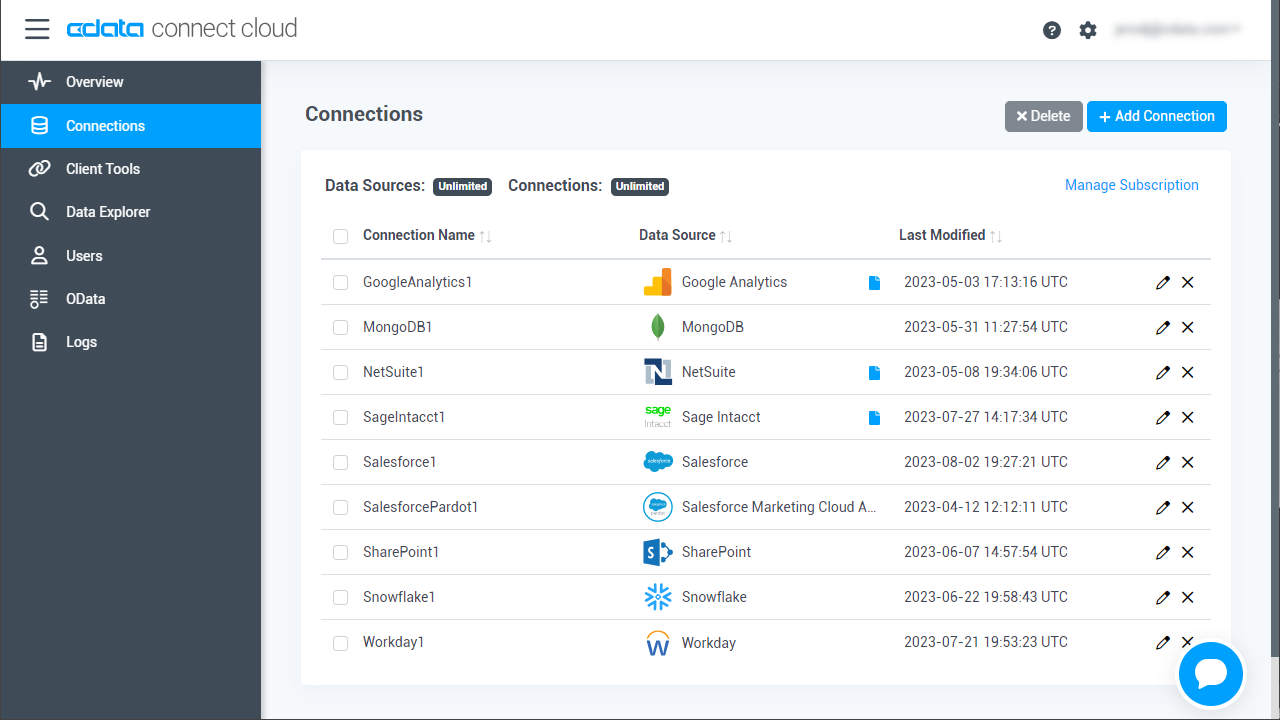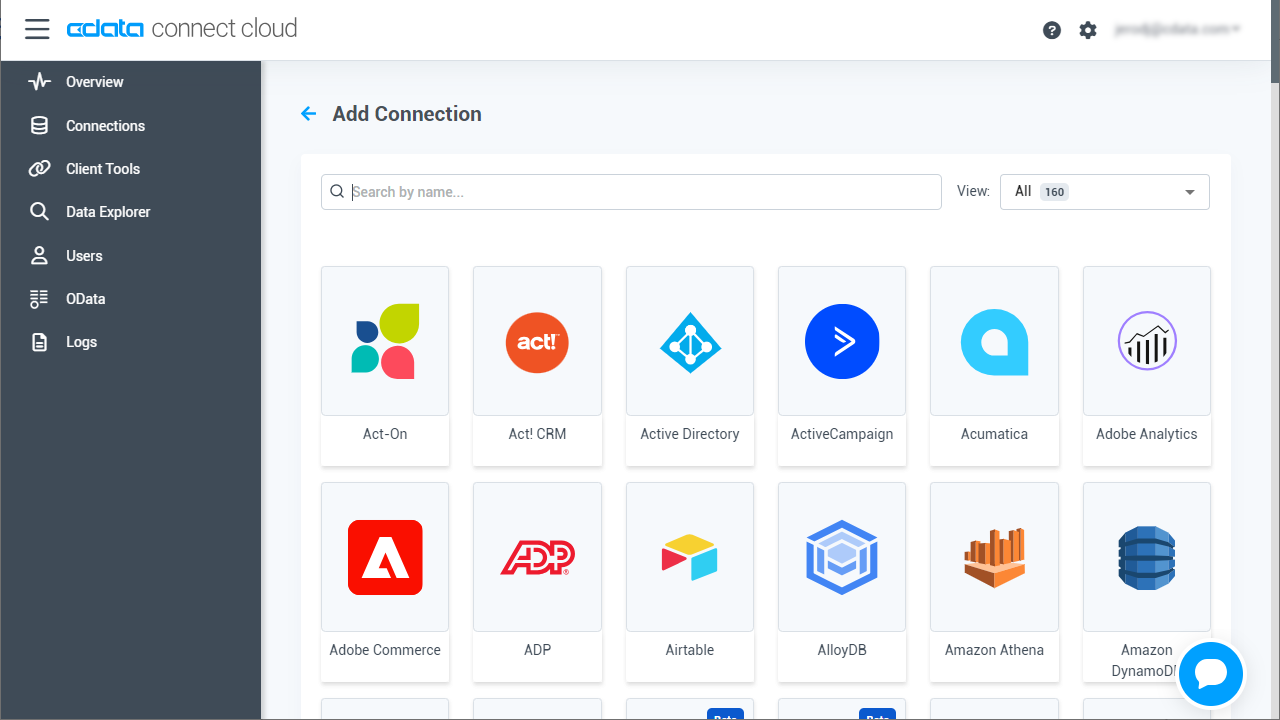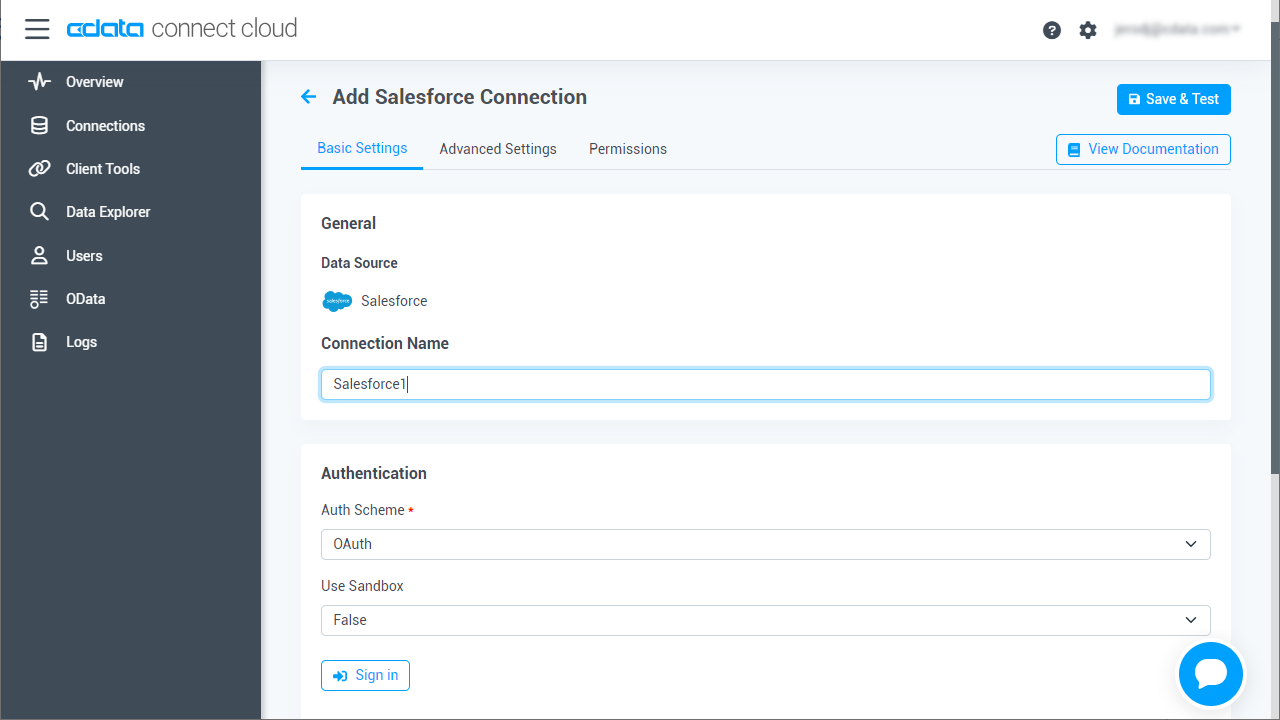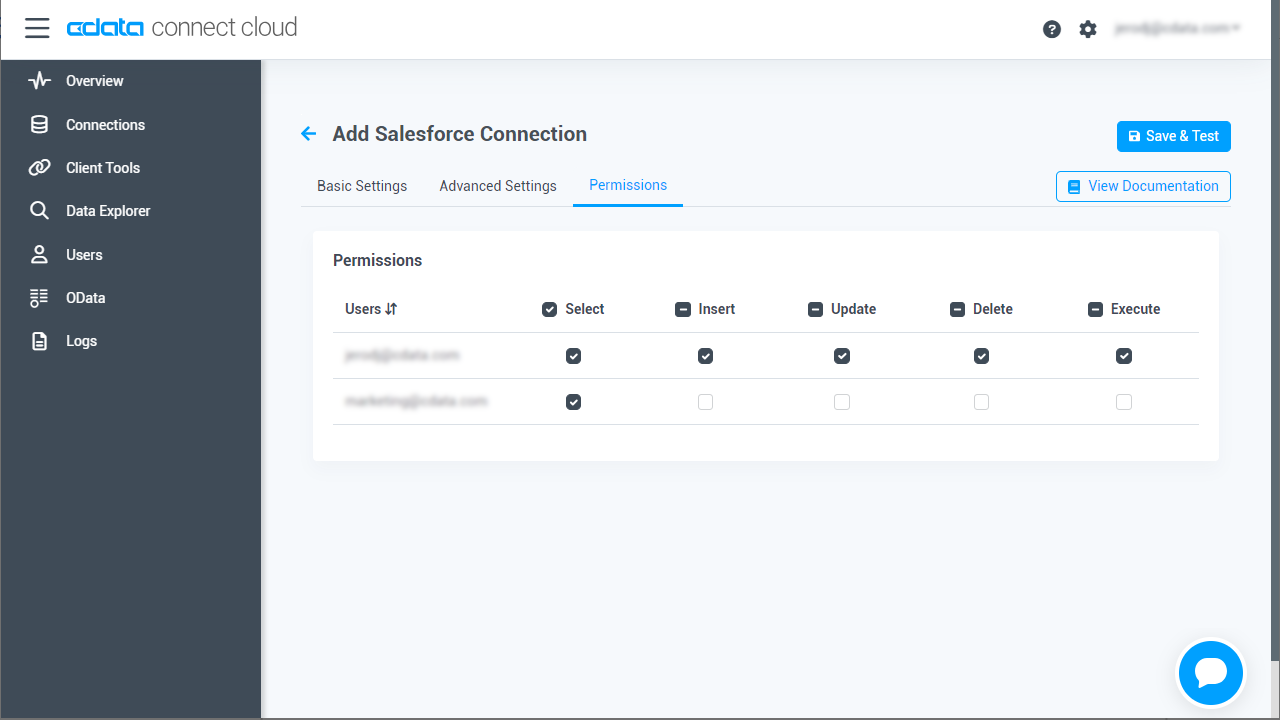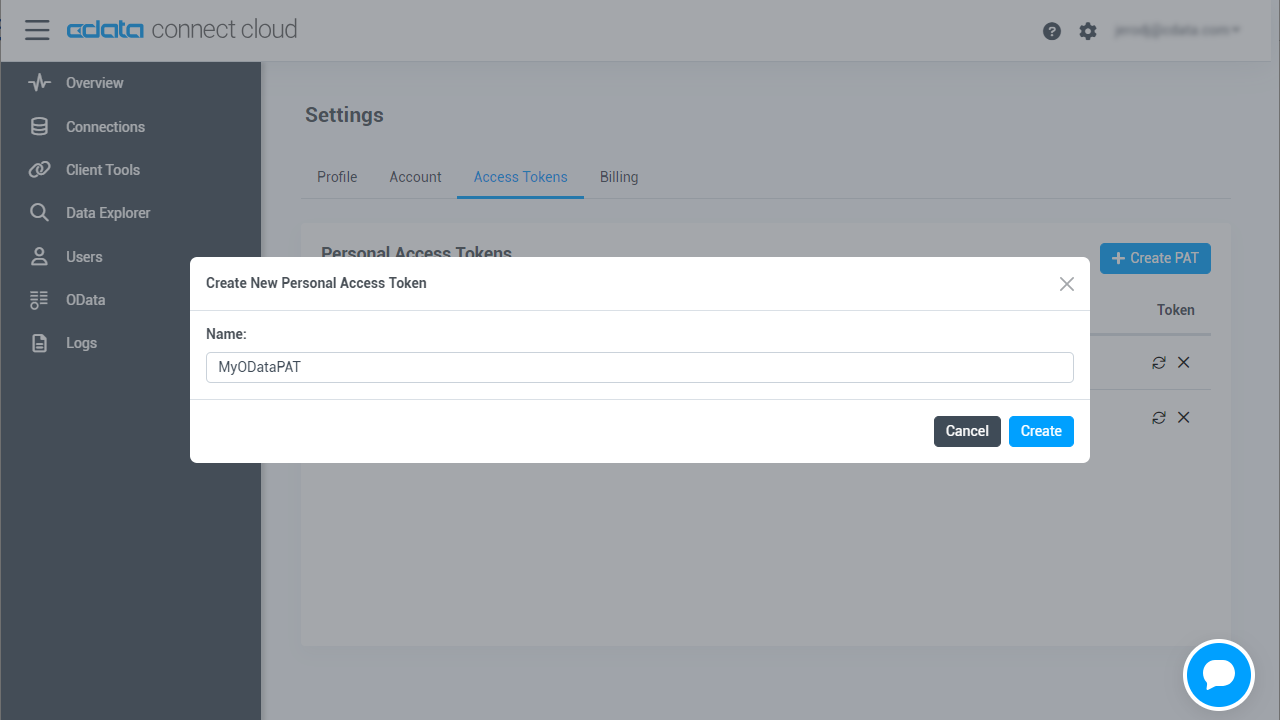Discover how a bimodal integration strategy can address the major data management challenges facing your organization today.
Get the Report →Query Zuora Data as a SQL Server Database in Node.js
Execute SQL Server queries against Zuora data from Node.js.
You can use CData Connect Cloud to query Zuora data through a SQL Server interface. Follow the procedure below to create a virtual database for Zuora in Connect Cloud and start querying using Node.js.
CData Connect Cloud provides a pure MySQL, cloud-to-cloud interface for Zuora, allowing you to easily query live Zuora data in Node.js — without replicating the data to a natively supported database. As you query data in Node.js, CData Connect Cloud pushes all supported SQL operations (filters, JOINs, etc) directly to Zuora, leveraging server-side processing to quickly return Zuora data.
Configure Zuora Connectivity for NodeJS
Connectivity to Zuora from NodeJS is made possible through CData Connect Cloud. To work with Zuora data from NodeJS, we start by creating and configuring a Zuora connection.
- Log into Connect Cloud, click Connections and click Add Connection
![Adding a Connection]()
- Select "Zuora" from the Add Connection panel
![Selecting a data source]()
-
Enter the necessary authentication properties to connect to Zuora.
Zuora uses the OAuth standard to authenticate users. See the online Help documentation for a full OAuth authentication guide.
Configuring Tenant property
In order to create a valid connection with the provider you need to choose one of the Tenant values (USProduction by default) which matches your account configuration. The following is a list with the available options:
- USProduction: Requests sent to https://rest.zuora.com.
- USAPISandbox: Requests sent to https://rest.apisandbox.zuora.com"
- USPerformanceTest: Requests sent to https://rest.pt1.zuora.com"
- EUProduction: Requests sent to https://rest.eu.zuora.com"
- EUSandbox: Requests sent to https://rest.sandbox.eu.zuora.com"
Selecting a Zuora Service
Two Zuora services are available: Data Query and AQuA API. By default ZuoraService is set to AQuADataExport.
DataQuery
The Data Query feature enables you to export data from your Zuora tenant by performing asynchronous, read-only SQL queries. We recommend to use this service for quick lightweight SQL queries.
Limitations- The maximum number of input records per table after filters have been applied: 1,000,000
- The maximum number of output records: 100,000
- The maximum number of simultaneous queries submitted for execution per tenant: 5
- The maximum number of queued queries submitted for execution after reaching the limitation of simultaneous queries per tenant: 10
- The maximum processing time for each query in hours: 1
- The maximum size of memory allocated to each query in GB: 2
- The maximum number of indices when using Index Join, in other words, the maximum number of records being returned by the left table based on the unique value used in the WHERE clause when using Index Join: 20,000
AQuADataExport
AQuA API export is designed to export all the records for all the objects ( tables ). AQuA query jobs have the following limitations:
Limitations- If a query in an AQuA job is executed longer than 8 hours, this job will be killed automatically.
- The killed AQuA job can be retried three times before returned as failed.
![Configuring a connection (Salesforce is shown)]()
- Click Create & Test
- Navigate to the Permissions tab in the Add Zuora Connection page and update the User-based permissions.
![Updating permissions]()
Add a Personal Access Token
If you are connecting from a service, application, platform, or framework that does not support OAuth authentication, you can create a Personal Access Token (PAT) to use for authentication. Best practices would dictate that you create a separate PAT for each service, to maintain granularity of access.
- Click on your username at the top right of the Connect Cloud app and click User Profile.
- On the User Profile page, scroll down to the Personal Access Tokens section and click Create PAT.
- Give your PAT a name and click Create.
![Creating a new PAT]()
- The personal access token is only visible at creation, so be sure to copy it and store it securely for future use.
With the connection configured, you are ready to connect to Zuora data from Node.js.
Query Zuora from Node.js
The following example shows how to define a connection and execute queries to Zuora with the SQL Server module. You will need the following information:
- server: tds.cdata.com
- port: 14333
- user: a Connect Cloud user (e.g. user@mydomain.com)
- password: the PAT for the above user
- database: The connection you configured for Zuora (Zuora1)
Connect to Zuora data and start executing queries with the code below:
var sql = require('mssql')
var config = {
server: 'tds.cdata.com',
port: 14333,
user: 'user@mydomain.com', //update me
password: 'CONNECT_USER_PAT', //update me
options: {
encrypt: true,
database: 'Zuora1'
}
}
sql.connect(config, err => {
if(err){
throw err ;
}
new sql.Request().query('SELECT * FROM Invoices', (err, result) => {
console.dir(result)
})
});
sql.on('error', err => {
console.log("SQL Error: " ,err);
})






